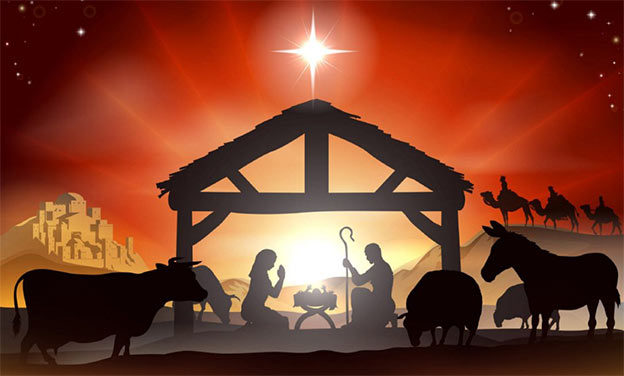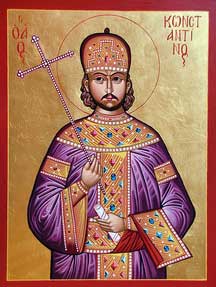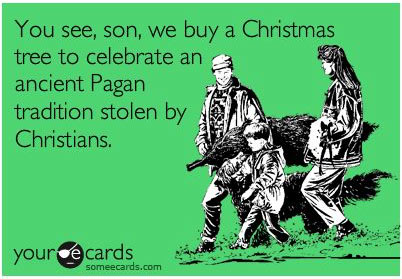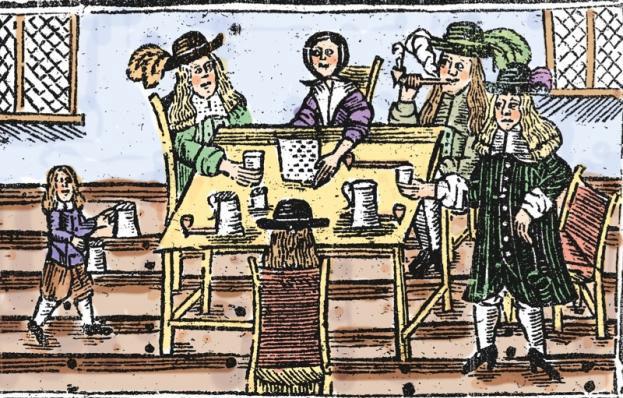“We’re getting near that beautiful Christmas season that people don’t talk about anymore. They don’t use the word Christmas because it’s not politically correct.
You go to department stores and they’ll say ‘Happy New Year,’ or they’ll say other things and it’ll be red, they’ll have it painted. But they don’t say — well guess what? We’re saying merry Christmas again.” – Donald Trump 10/17
Dear Chairman Meow,
I am 8 years old. Some of my friends say there is a “War on Christmas.” Papa says that Chairman Meow has perfect, infinite wisdom. Please tell me the truth; is there a war on Christmas? – Virginia O’Hanlon, New York, NY
So, Is There a War on Christmas?
Virginia, your little friends are wrong.
Allow Chairman Meow to educate you on the history of Christmas, and December 25th.
The Pagan History of Christmas, (Adam Ruins Everything)
December 25th was always a Pagan Holiday Called, “Saturnalia”
For literally thousands of years before Christians claimed ownership of December 25th, it was a Pagan holiday celebrating the birth of the Sun God, Sol Invictus which concluded their annual winter festival of Saturnalia.
The date is also significant because it has always marked the winter solstice; the shortest day of the year. The darkest day of the year was always a popular date for feasts and celebrations, as quite frankly, people needed cheering up.
OK, but can’t it just be a coincidence that Jesus was born on the winter solstice?
Early Christians didn’t celebrate Jesus’ birthday on December 25th
Did you know that the Bible doesn’t mention Christmas or the actual date of Jesus’ birth? (The Bible doesn’t mention cats, either. Hmmm…) This really wasn’t an issue for early Christians, as many of them believed that Jesus was more of a spiritual entity than a man anyway.
Giving Jesus a specific birthday was part of a larger effort to depict him as a normal, “humble” man, which made him easier for people to relate to.
In fact, there’s no record of Early Christians recognizing Jesus’ birthday on December 25th until 354 A.D. By then, a lot of time had passed, especially considering that during this period of early history few records were kept or survived. That would be like celebrating the signing of the Declaration of Independence on July 4th for the first time in the year 2163!
Jesus wasn’t born on December 25th; it was too cold

It was said of the day of Jesus’s birth that, “There were in the same country shepherds abiding in the fields, keeping watch over their flock by night.” (Luke 2:8)
*When Chairman Meow was born, a double-rainbow appeared in the sky, but who’s keeping track?
Anyway, In Bethlehem, December is quite cold, and to this day flocks of sheep and cattle in that region aren’t out in the fields. In fact, livestock are traditionally brought in from the fields in the beginning of November. If there were animals out in the fields, it wouldn’t have been December. According to this and other clues in the Bible, Jesus probably would have been born in September.
Roman Emperor Constantine chose the date for Jesus’ Birthday

When Constantine became emperor in 323 A.D. his chief concern was unifying and stabilizing the Roman Empire. The problem was that at that time there was not yet a unifying religion.
For political reasons, Constantine decided to promote Christianity as this unifying religion, and in doing so he needed the support of the people, who were largely Pagan.
Keep in mind, Virginia, that “Paganism” wasn’t really a specific well-defined religion. (In fact, the word “Pagan” comes from the Latin word for “field,” as most Paganism persisted in rural areas, and early Christianity was more of an urban phenomenon)
If Constantine was going to get support for Christianity throughout the empire, he was going to have to finesse it a little to appeal to Pagans.
Christianity adopted Pagan traditions & rituals

“Make the party about Jesus, and you can rock on”
For Emperor Constantine, Inserting Christ into Pagan winter festivals was basically a civic compromise. Christianity adopted Pagan traditions to make it more familiar and attractive to convert to, especially for the masses who celebrated Pagan traditions. Consider the Pagan origin of our favorite Christmas traditions:
- The Christmas Tree – Comes from the Pagan tradition of bringing greenery indoors to decorate in the middle of the Winter; especially around the winter solstice; the shortest and darkest day of the year when people needed cheering up
- Giving gifts – The tradition of exchanging gifts came from Saturnalia, the Roman Pagan winter festival when gifts were given in honor of loved ones who died the previous year. Of course, no one can argue that modern day commercialism (and people being trampled at Walmart on Black Friday!) isn’t completely out of hand
- Christmas Lights – Pagan tradition on the solstice symbolizing the the return of light after the shortest day of the year. Pagans used to light candles and fires during rituals to lure back the Sun for longer days
- Mistletoe – A symbol of fertility for Pagans and Druids; Mistletoe was considered a divine plant symbolizing love and peace. For Druids it was a tradition to kiss underneath it during the winter solstice
- The Yule Log – Based on Pagan customs, and influenced by Scandinavian solstice traditions; traditionally a tree trunk was dragged to a large fireplace where it was to burn for 12 days. From this comes the 12 days of Christmas
Christmas Remained a Violent, Drunken Party for a Long Time

In England, Christmas was like a “scary Mardi Gras” for a long time In fact, mobs would bang on rich people’s doors and demand to be served the best food and drink that they had.
If they refused, they were threatened with Christmas violence:
“Oh, bring us a figgy pudding and a cup of good cheer
We won’t go until we get some!
We won’t go until we get some!
We won’t go until we get some, so bring some out here!” – We wish you a merry Christmas
Hmmm… I guess that was like early “trickle down economics?”
The Puritans Banned Christmas, but Immigrants Brought It Back!

When the Puritans came to New England, they decided that Christmas had no place in a Christian nation, and banned it. Celebrating Christmas was actually illegal in many places in early America, and getting caught exhibiting Christmas spirit could result in paying a fine.
Christmas continued to be unpopular in America until the 19th Century, when immigrants flooded into the country, bringing with them their own Christmas traditions.
So, it was immigrants that shaped our modern, American Christmas celebration, but somehow we treat Christmas like it’s always been a sacred Christian holiday. Oh, the irony!
The Christmas Story begins 2,000 years ago with a mother, a father, their baby son and the most extraordinary gift of all—the gift of God’s love for all of humanity.
Whatever our beliefs, we know that the birth of Jesus Christ and the story of his life… pic.twitter.com/P94C3LjWlx
— Donald J. Trump (@realDonaldTrump) December 1, 2017
“We wish you a merry solstice!” Or, “Happy Saturnalia!”
“The historical truth is Winter festivities have Pagan roots, with drunken traditions, that a lot of Christians hated for a thousand years.” – Adam Ruins Everything

Chairman Meow respects people of all faiths, and wishes that no one claim a monopoly on the truth, or on December 25th for that matter. People have been celebrating the winter solstice for thousands of years, and the most important thing is that it brings people of all beliefs together in love and friendship.
The next time someone tells asks you to keep the Christ in CHRISTmas, you can politely wish them a “Merry Solstice,” and remind them that the war on December 25th started a long time before Jesus was born!
December 25th: Oh, It’s All Good!
So, Virginia, why does Chairman Meow care when Jesus was born, anyway? Good question. The date of Jesus’ birth (or whether he was married) is essentially trivial and shouldn’t affect the content of his message which is to love and respect others.
Many people obsess on the form, (the words of men) and never understand the actual content. To them religion is merely a vocabulary to impose their world view onto others.
Jesus himself said, “Ye hypocrites, well did Isaiah prophesy of you, saying, ‘This people draweth nigh unto me with their mouths, and honoreth me with their lips; but their heart is far from me. But in vain do they worship me, teaching for doctrines the commandments of MEN.” (Matt. 15:7-9)
Chairman Meow haz spoken.
Must see: The Daily Show: War on Christmas – Hliarious!

